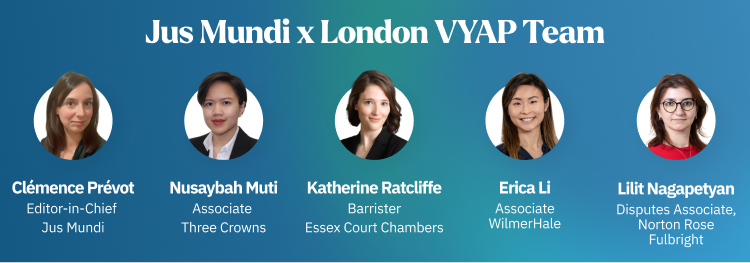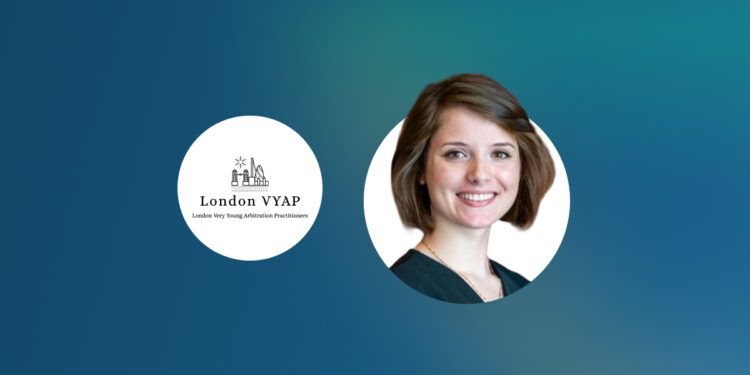Their Chief Justices Consider the Challenges and Opportunities Ahead at London International Disputes Week 2025
THE AUTHOR:
Iaroslava Mavliutova, Intern at Wilmer Cutler Pickering Hale and Dorr
As part of London International Disputes Week 2025, a panel titled “International Commercial Courts of the Gulf – Their Chief Justices Consider the Challenges and Opportunities Ahead” brought together distinguished judges to discuss the development of international commercial courts (“ICCs”) across the Gulf region. Moderated by Rupert Reed KC, the panel featured H.E. Judge Wayne Martin KC AC, Lord Thomas of Cwmgiedd, and Lord Hope of Craighead, who explored the role of ICCs in shaping transnational dispute resolution, procedural innovations, and mediation.
Dubai International Financial Centre
H.E. Judge Wayne Martin KC AC, the Chief Justice of the Dubai International Financial Centre (“DIFC”) Courts, reflected on the historical jurisdictional tensions between the DIFC and Dubai onshore courts. He noted that the overlapping jurisdiction in Dubai had previously led to parallel proceedings, which prompted the establishment of a joint judicial tribunal in 2015. While the tribunal was intended to streamline jurisdictional coordination, in practice, it has resulted in significant delays. To resolve this issue, the DIFC Courts have since adopted a more pragmatic approach by narrowing the tribunal’s remit, thereby enabling the DIFC Courts to independently adjudicate most commercial disputes. This reform has significantly improved efficiency, with cases now typically resolved within 28 days with the support of the onshore judiciary.
On enforcement and service, Chief Justice Martin observed that the DIFC Courts have improved significantly in this area. He also noted ongoing discussions around the establishment of a unified enforcement authority to serve all UAE courts. Importantly, by contrast to service under the English civil procedural rules, there is no permission requirement for the service of claims out of jurisdiction.
Turning to judicial composition, Chief Justice Martin acknowledged that the DIFC bench does not yet reflect the international character of its caseload. He emphasized the need for greater diversity in terms of gender, nationality, and legal background. In particular, he suggested that appointing civil law-trained judges who have experience in common law procedures could enhance the court’s ability to adjudicate cases involving UAE law.
On mediation, Chief Justice Martin echoed Lord Hope’s view that parties should not be compelled to mediate. Drawing on his experience in Australia—where mediation is often mandatory—he expressed skepticism about its suitability in the international context. Nonetheless, he noted that the DIFC Courts are preparing to launch a standalone mediation service, which will be accessible to both court users and the public. Under the new procedure, the DIFC Courts will be able to refer cases to this service, and mediated settlements may be formalized through consent orders made enforceable under the United Nations Convention on International Settlement Agreements Resulting from Mediation (2019) (“Singapore Convention on Mediation”).
Qatar Financial Centre Court
The Rt. Hon. Lord Thomas of Cwmgiedd, the Chief Justice Qatar Financial Centre Court (“QFC Court”), emphasized that jurisdictional clarity has been fundamental to the court’s effective operations. Enforcement has historically been efficient, which is aided by the early appointment of a dedicated enforcement judge. While recent legislative changes have slightly altered the court’s structure, enforcement remains smooth and timely.
On judicial diversity, Lord Thomas highlighted the QFC Court’s distinctive approach in appointing members to its bench. The current bench includes three Qatari judges, alongside jurists from Singapore, South Africa, Scotland, Commonwealth countries, and China. This diversity fosters intercultural awareness and encourages local practitioners to engage with the court. He also noted that local legal culture, particularly the reliance on expert evidence and limited judicial questioning, has benefited from a more internationally representative bench.
In discussing the court’s contribution to global procedural development, Lord Thomas explained that the QFC Court has prioritized simplicity and clarity. While its rules are modeled on the English White Book, they have been significantly condensed to address most procedural issues without extensive reliance on case law. This codified approach reflects the court’s broader commitment to accessibility and efficiency.
Lord Thomas also addressed the court’s mediation framework. He noted that the QFC Court has developed a robust network of mediators and actively promotes the use of the Singapore Convention on Mediation. Echoing a pragmatic philosophy, he remarked that courts can “lead the horse to water but not force it to drink,” underscoring the importance of voluntary participation in mediation.
Abu Dhabi Global Market Courts
The Rt. Hon. the Lord Hope of Craighead KT, the Chief Justice of the Abu Dhabi Global Market (“ADGM”) Courts, addressed the integration of ICCs into the broader judicial architecture of the Gulf region. He noted that the ADGM Courts, established in 2015, has benefitted from a foundational statute that clearly delineated their jurisdiction and scope. As a civil and commercial court, the ADGM Courts operate under a legal framework enacted by the ruler of Abu Dhabi, which has provided clarity and stability from the outset.
Lord Hope emphasized that the ADGM Courts prioritize early engagement with the onshore Abu Dhabi judiciary. He credited the ADGM Courts’ registrar with laying the groundwork for this relationship and noted his own efforts to strengthen it further. As a result, the ADGM Courts haven’t encountered jurisdictional conflicts—a testament, he observed, to the clarity of their founding legislation and the cooperative spirit in which they were established.
On judicial development and diversity, Lord Hope highlighted the court’s efforts to train Emirati professionals in the English common law, which governs proceedings in the ADGM Courts. He acknowledged the challenges faced by individuals trained in civil law systems but noted that progress is being made through targeted initiatives, including overseas education in England and Australia. These efforts aim to ensure that future Emirati judges meet the high standards required to maintain the court’s international reputation.
Turning to digital innovation, Lord Hope explained that since the courts’ inception, all cases have been managed through an e-platform which is accessible globally. The ADGM Courts operate under a flexible system of rules and practice directions, and are actively exploring the use of emerging technologies. One such initiative involves the blockchain-based authentication of judgments, whereby each decision would carry a scannable code to facilitate instant recognition by enforcement authorities.
In reflecting on the role of mediation, Lord Hope underscored its importance within the ADGM Courts’ dispute resolution framework. He noted that mediation is conducted in both Arabic and English, and supported by a team of four bilingual mediators. The court has achieved a resolution rate exceeding 75% in mediated cases. Mediation is encouraged at two key stages: pre-litigation, where parties may opt to mediate before initiating proceedings, and during litigation, where parties are routinely asked at the outset whether they have considered mediation. While participation remains voluntary, the service is offered free of charge and has proven highly effective. Lord Hope emphasized that this approach reflects the court’s broader commitment to accessible justice.
Conclusion
Despite the different legal frameworks and stages of institutional maturity across the Gulf region, the panel conveyed a unified sense of progress and ambition in the evolution of ICCs. The DIFC Courts have demonstrated how jurisdictional refinement and digital innovation can drive efficiency; the QFC Court has shown that diversity and procedural clarity can foster greater engagement; and the ADGM Courts have exemplified the value of foundational legal certainty and a strong commitment to mediation. Together, these courts reflect a region that is not only aligned with global standards but also actively contributing to their development. As the Gulf region continues to attract cross-border investment and deepen its role in international commerce, the trajectory of its international commercial courts is one of growing influence, sophistication, and promise.
ABOUT THE AUTHOR
Iaroslava Mavliutova is an Intern in the International Arbitration Practice Group of Wilmer Cutler Pickering Hale and Dorr, and a Russian-qualified lawyer experienced in investment arbitration and public international law. She holds LL.M. from the Chinese University of Hong Kong in International Economic Law and Bachelor of Laws with honors from the HSE in Moscow.

*The views and opinions expressed by authors are theirs and do not necessarily reflect those of their organizations, employers, or Daily Jus, Jus Mundi, or Jus Connect.





